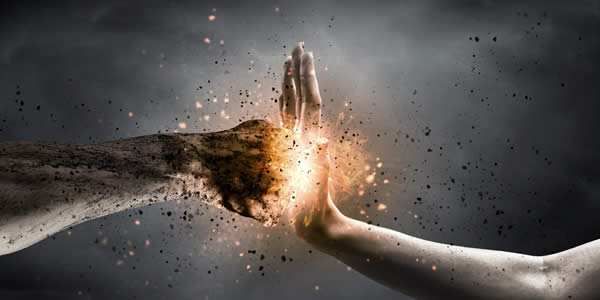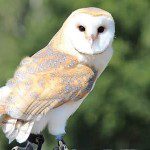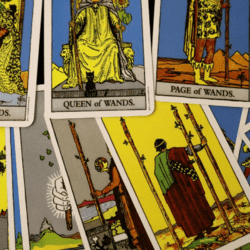Recently, a few prominent authors, activists, and well-known personalities in the Pagan world did something unfortunate. Very publicly. Bloggers and Facebookers immediately took up sides, with the battle lines being drawn along “No Elder of mine!” and “We must respect our Elders even when they’re wrong.” And I got to thinking about the phenomenon of the Pagan Elder. It’s actually a very murky subject.

When I was young in the Craft (don’t I always come around to that?) there was really no such thing as an Elder outside of the theoretical existence of such mentioned in the Ordains — the BTW “rules” — as the ones to whom a High Priestess could turn for counsel. Truth be told, there were rarely that many senior members of the same Trad around, much less the same coven, that a troubled HPS could actually have taken counsel from any Elders. Not only that, but if you accused someone of being an Elder they’d immediately protest that oh, no they weren’t – they were not worthy. Didn’t matter if they’d been running a coven for twenty years and had fifteen downline covens. They categorically refused to be labeled an Elder. One person, in refusing to be called one, defined “Elder” to me in such exalted terms I laughingly retorted that by their lights not even Merlin himself would qualify!
These days, quite the contrary, it seems anyone who’s been a Pagan for more than 15 minutes wants to run a coven, anyone who’s run a coven for more than 15 minutes wants to start their own tradition, and anyone who posted their new trad on WitchVox longer ago than 15 minutes thinks they should be called an Elder. And they want that R.E.S.P.E.C.T. As they learn, sometimes painfully, it doesn’t work that way. So how does it work?
I don’t think anyone would deny that that the HP and/or HPS of a coven was an Elder of that coven. But does that title and the respect that goes with it translate into the community at large? Not really. Nor should it.
The problem as I see it that there are numerous roles in the Pagan world that all get lumped together under the heading of “Elder.” A person who has been prominent in one or more large Pagan organizations is often called an Elder in part because of their name recognition, in part because many Pagans approve of their work, and in part because “Elder” is the default title when describing Pagans who in any other religion would have a position (and title) above that of an ordinary priest or minister. As a rule, Paganism has no bishops, so the only term we can use that non-Pagans are likely to understand and respect is “Elder.” Prominent Pagan activists and ecumenicists, even when they hold no priest-like titles otherwise, often get called Elders by those who agree with them, a title that then gets picked up by those who disagree with them or simply don’t know them. Even just authoring popular books on Pagan topics can get one considered an Elder by one’s fans.
The one thing we all seem to agree on, and it’s a good one, is that one does not get to label oneself an Elder; it has to be bestowed. It has to come from being known in the Community and well thought-of for quite some time.
While Pagans tend to agree on what an Elder isn’t, we still don’t have a clear definition of what an Elder is. It’s time for the definition of an Elder to get some fine tuning. It’s not necessary, for one thing, to honor someone as an Elder just because they’re prominent. I’m not suggesting we be rude to anyone, but really, there’s a huge difference between treating someone with due respect and lionizing them. The first is good manners, the latter is an emotional investment. It’s not necessary to accept or agree-with the pronouncements of a fellow Pagan just because some of us — or all of us — consider them an Elder. It is necessary to pay better attention to whether a they’re speaking as an ‘Elder’ on behalf of Paganism or just having an opinion. They are entitled to personal opinions, after all. It’s just that Facebook and the blogosphere has created this huge, ongoing conversation in which it’s hard to tell the difference. It is necessary to accept that Pagan Elders are not Popes, and therefore can never be assumed to be speaking ex cathedra. Everything any one of us says is merely the opinions of a fellow human being.
The definition of Pagan Community is being hotly contested right now, too, and with good reason. The old “Wicca-lite” NeoPaganism has given way — is being supplanted, if we look at it clear-eyed — by a wide range of diverse and sometimes conflicting Paganisms from the fluffiest to the most martial and from the unabashedly syncretic to the strictest reconstructionisms. We can’t really call it a Community any more. A friend once described modern Paganism as “a collection of loosely-related societies with just enough in common to fight all the time.” If you tried to do a Venn diagram of us it would huge and sloppy, with no center and so few points of commonality that some groups have none at all except the word “Pagan.” So why should those on one side of the diagram also consider someone an “Elder” just because the people way over on the other side do so? Why should they get upset just because someone titled an “Elder” in the press or the Pagan blogosphere, but who isn’t actually part of their Paganism, does or says something they disagree with?
I submit they shouldn’t. I submit they — we — should just say “Not my Elder.” There’s no need for the hurt and rage I’ve seen recently unless the ‘Elder’ in question is actually an Elder in the corner of modern Paganism to which you subscribe and has betrayed its values. Reaching this detachment requires that we finally admit to ourselves and each other that not all Pagans share the same values. It requires that we grant each other the right to hold differing views on spirituality, ethnicity, sexuality, social justice, politics, and smooth vs furry, without forfeiting our right to call ourselves Pagans. And it requires that we allow other Pagans to honor their own Elders without feeling like we must do likewise. Universal Elderhood is a huge burden of expectation to lay on anybody.
Not all Elders are my Elder, and among ourselves that’s how it should be. We need to be clear that we’re now so diverse that most Elders are “Not my Elder,” that no one speaks for more than just one or two of the circles in that big, messy Venn diagram. “Not my Elder” shouldn’t be an imprecation, just a fact of life in the gloriously diverse New Paganism in which we find ourselves.

Patheos Pagan on Facebook.

the Agora on Facebook
The Rantin’ Raven is published on alternate Saturdays here on the Agora. Subscribe via RSS or e-mail!
Please use the links to the right to keep on top of activities here on the Agora as well as across the entire Patheos Pagan channel.

















